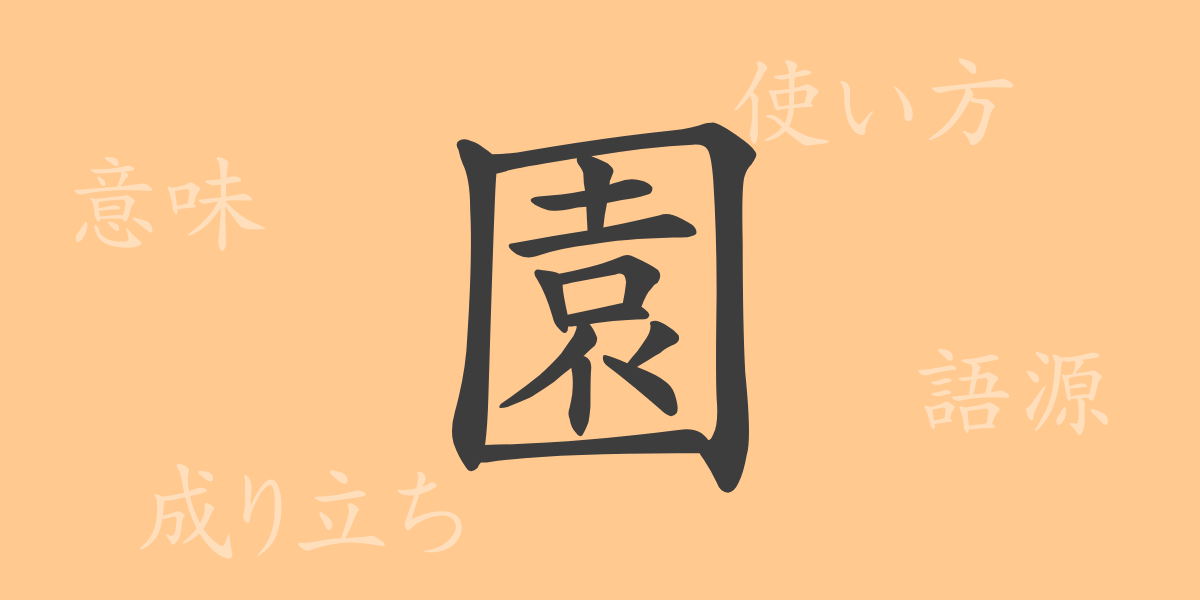“
In Japanese culture, “”園”” (En) holds a meaning beyond just a character. The scenery woven by this single character represents a deep respect for the beauty of nature and people’s lives. Today, we will unravel the charm of “”園”” (En) and explore its history, meaning, usage, and its role as a word engraved in the hearts of Japanese people.
The Origin (Etymology) of 園 (En)
The etymology of “”園”” (En) is ancient, and its original form can be seen in old Chinese documents. Originally, it was used as a character referring to a garden, a wide space surrounded by trees, formed by combining “”囗”” (En), meaning enclosure, with “”木”” (Ki), meaning tree. As time passed, this character was also transmitted to Japan and developed in connection with Japan’s unique culture.
The Meaning and Usage of 園 (En)
In modern Japanese, “”園”” (En) refers to a partitioned place used for a specific purpose, such as a garden, amusement park, or nursery school. It can also have a metaphorical meaning, expressing a peaceful and enjoyable place or state. In terms of usage, it forms various compound words in combination with other kanji and is used in a wide range of contexts.
Reading, Stroke Count, and Radical of 園 (En)
The character “”園”” (En) also has features in its reading and structure.
- Reading: The on’yomi is “”en,”” and the kun’yomi is “”sono.””
- Stroke Count: 13 strokes in total.
- Radical: 囗 (En or Kunigamae)
Idioms, Phrases, and Proverbs Using 園 (En) and Their Meanings
There are numerous idioms, phrases, and proverbs in Japanese that include “”園”” (En). Here are some of them.
- 植物園 (Shokubutsuen): A facility that cultivates and exhibits various plants.
- 遊園地 (Yuenchi): An amusement facility with rides and attractions.
- 動物園 (Doubutsuen): A facility that keeps and displays various animals.
- 福祉園 (Fukushien): A welfare facility for the elderly or people with disabilities.
- 桃花源 (Toukagen): A utopia or seeking such a place.
Summary of 園 (En)
“”園”” (En) occupies an important position in the Japanese language as a character symbolizing natural and human living spaces. Its form and meaning have the power to evoke the beautiful nature we should cherish and the enjoyable times we spend together. The infinite images that spread from this single character tell the richness of the Japanese language.
“

























